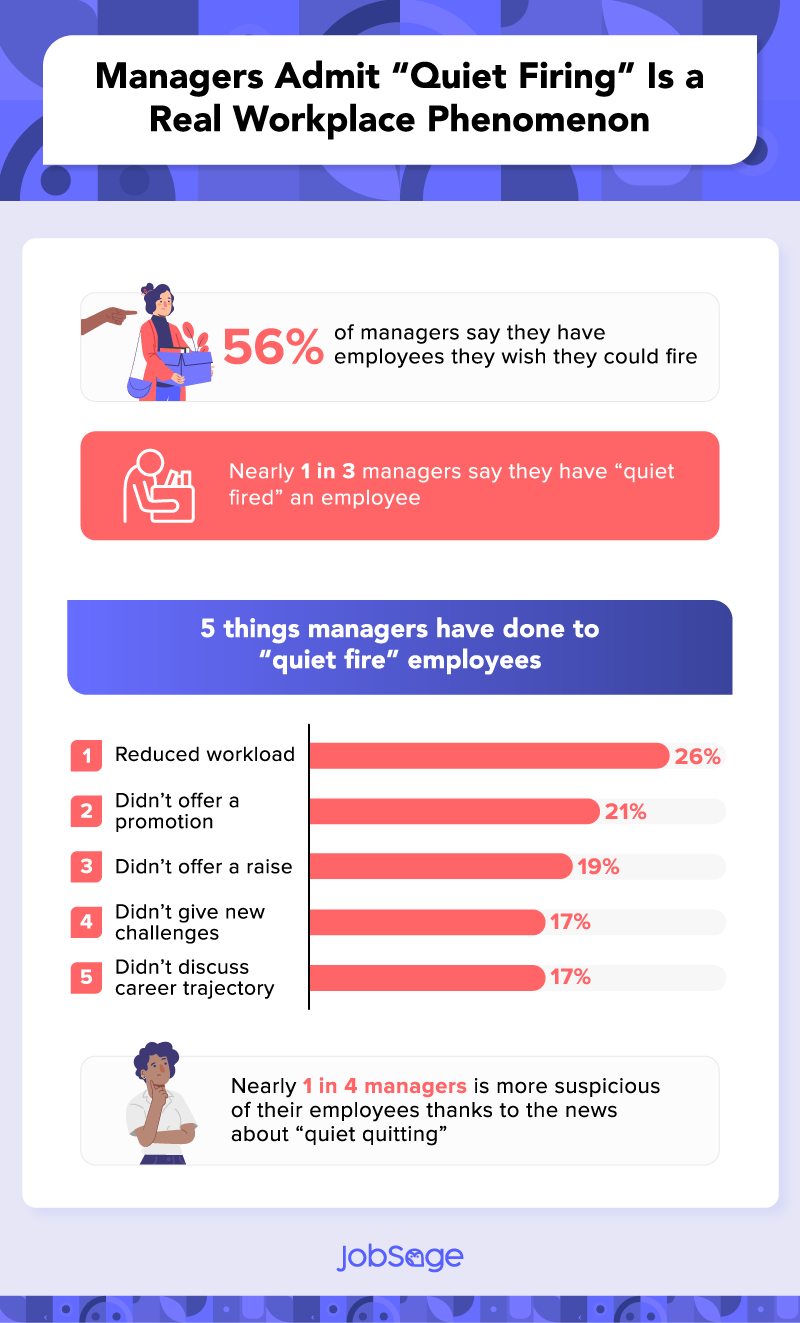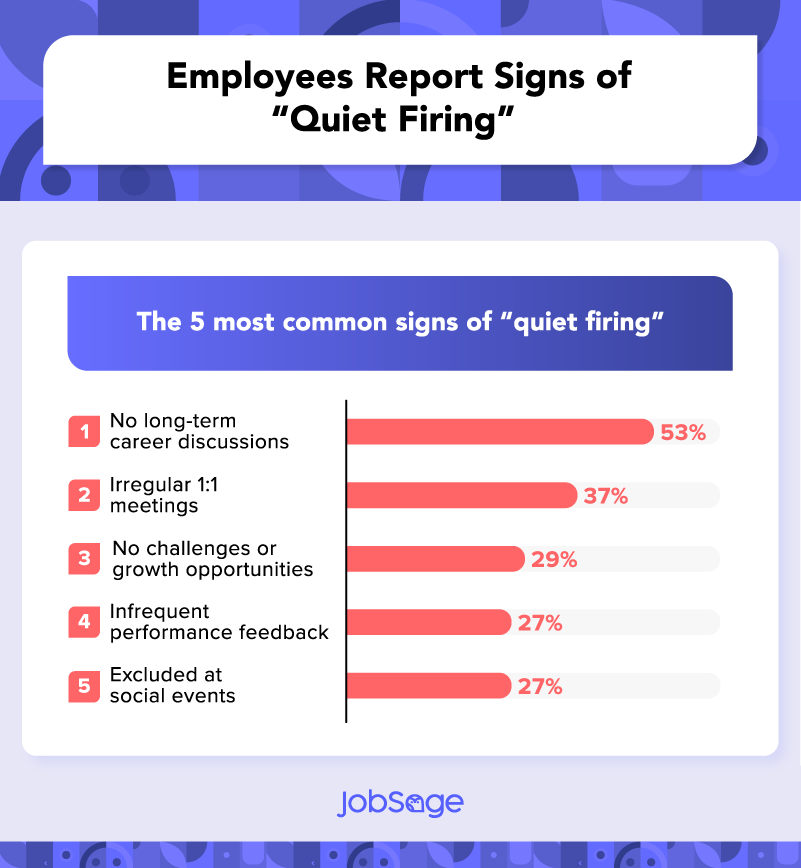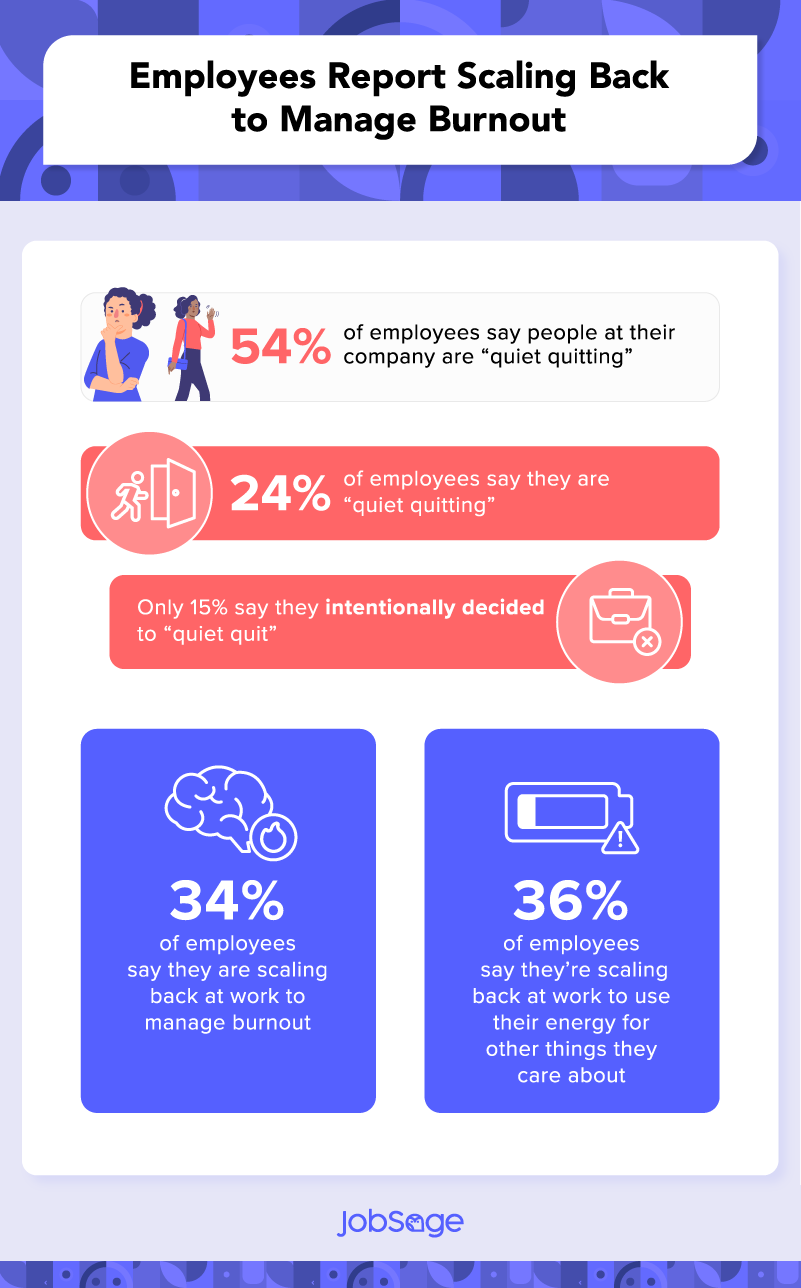You may have seen and heard a good deal about “quiet quitting” in the past few months. This viral term refers to employees supposedly pulling back at work and opting to do the bare minimum required of them. Of course, this is just one side of the story.
What about “quiet firing,” another related trend? We surveyed 1,000 managers and 1,000 employees to find out if quiet firing — when managers push out employees by treating them poorly — actually happens in the workplace. This post details what they told us.
Key findings
- Of managers surveyed, 56% say they have employees they wish they could fire.
- Nearly a third (29%) of managers say they’ve “quiet fired” an employee.
- Nearly 1 in 4 managers say they are more suspicious of their employees thanks to the news about “quiet quitting.”
Managers admit to “quiet firing” employees
Even though more than half (56%) of managers surveyed have employees they wish they could fire, firing someone can be tricky. Sometimes firing an employee costs the company quite a bit of money; sometimes, even a compassionate layoff feels difficult and uncomfortable. Although we don’t know whether or not these factors encourage it, nearly a third (29%) of managers report that they’ve intentionally “quiet fired,” or slowly pushed out, an employee.

So how does this kind of “firing” happen? Managers say the two main ways they squeeze out employees without overtly firing them are by reducing their workloads (26%) and passing them over for promotions (21%). Others withhold raises (19%) and stop talking about the future or giving them new challenges (17%).
Managers may be more impatient with their employees thanks to the recent news cycle. Nearly 1 in 4 managers say they are more suspicious of their employees thanks to all the reports about quiet quitting. This kind of “productivity paranoia” can lead to more stress on employees.
Employees say they’re not getting attention from their managers
Employees themselves might not recognize their managers’ treatment as “quiet firing” by name, but many note some of the telltale signs.
Just over half of employees (53%) say their managers don’t have any long-term career discussions with them, and over a third (37%) say they don’t have regular one-on-one meetings. Unlike savvy managers who might handle this situation more appropriately, those who have employees they’re hoping will leave the company simply don’t take the time to offer thoughtful advice or one-on-one time.

In addition, nearly a third of employees report a lack of challenges (29%), infrequent performance feedback (27%) and even exclusion at social events (27%). This kind of inattention can be bad for morale and engagement at work regardless of whether or not their managers intend to edge them out.
Employees are scaling back to manage burnout
Even if they are being “quiet fired,” many employees say they’re “quiet quitting” anyway. Over half (54%) of the employees surveyed said people at their company are “quiet quitting,” and nearly a quarter (24%) of the employees said the same of themselves.
However, “quiet quitting” isn’t necessarily intentional — nor is it an indication that an employee is completely disinterested in the work they’re doing. Only 15% of those who are actively quitting said that was their original plan. What has been labeled “quitting” may just be a way for employees to manage the personal and professional demands on their time and energy without completely burning out.

In fact, a third of employees say they are scaling back at work to manage burnout, which is a particular concern in certain industries. Of those in education, 40% are making efforts to conserve their resources as are 38% of those in healthcare.
As we saw during the Great Resignation just last year, work isn’t everything. Just over a third of employees (36%) we surveyed said they’re scaling back to use their energy for other things they care about — sometimes employees don’t have the bandwidth to do it all, and they have to make sacrifices. Over half (57%) say they skip workplace social events like team lunches when they’re stressed.
As some managers push and some employees pull, you should make sure to find the professional environment that works for you. Make sure to read reviews of potential employers and check for indications of managers who are invested in their employees’ growth and sustainable operations.
Methodology: We surveyed 1,007 full-time managers and 1,003 full-time employees in the U.S. Of the managers surveyed, 65% identified as men, 34% as women and 1% as nonbinary. 49% of employees identified as men, 50% as women and 1% as nonbinary.
